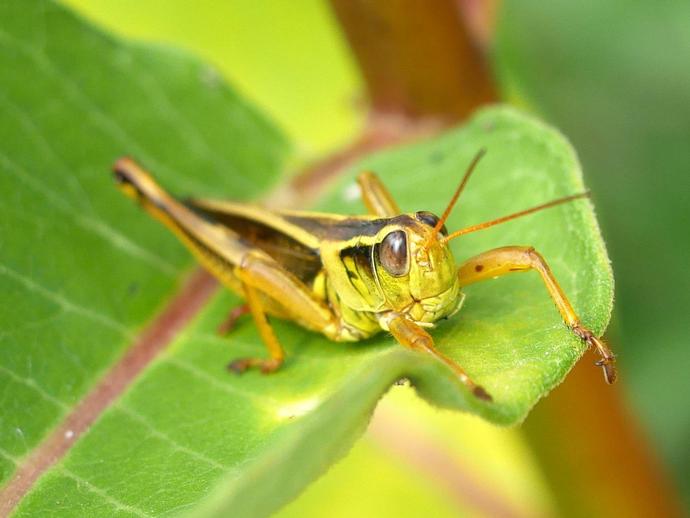August 27, 2020
The red-legged grasshopper (Melanoplus femurrubrum) is one of our most common grasshoppers, and it can be found in the U.S., Mexico, and Canada. However, depending on where you find it, it might be a different size!
The farther north you go, the smaller the adult red-legged grasshoppers. This is because colder regions have shorter growing seasons, meaning that these grasshoppers need to grow up fast. The adults up north hit maturity at a smaller size so that they can more quickly reach their reproductive stage before the season ends!
These grasshoppers are herbivores, and they aren't picky when it comes to the plants they'll eat. They're known as "mixed-feeding" herbivores, meaning they have to eat a variety of different kinds of plants in order to meet their nutritional needs. In warmer weather, they tend to eat more and grow more quickly. They also increase their food intake and metabolic rate if there are a lot of spiders and other predators around. Maybe it's stress-eating.
Thank you to VMNH Associate Curator of Invertebrate Zoology Dr. Kal Ivanov for IDing this one for me! #BenInNature
ABOUT THIS POST
Social distancing can be difficult, but it presents a great opportunity to become reacquainted with nature. While he is working from home, Administrator of Science Ben Williams is venturing outdoors each day to record a snapshot of the unique sights that can be found in the natural world.
NATURE PHOTO IDENTIFICATIONS
If you discover something in nature that you would like help identifying, be sure to message us right here on Facebook with a picture (please include location and date of picture) and we'll have our experts help you identify it!

 Hours & Admissions
Hours & Admissions Directions
Directions

